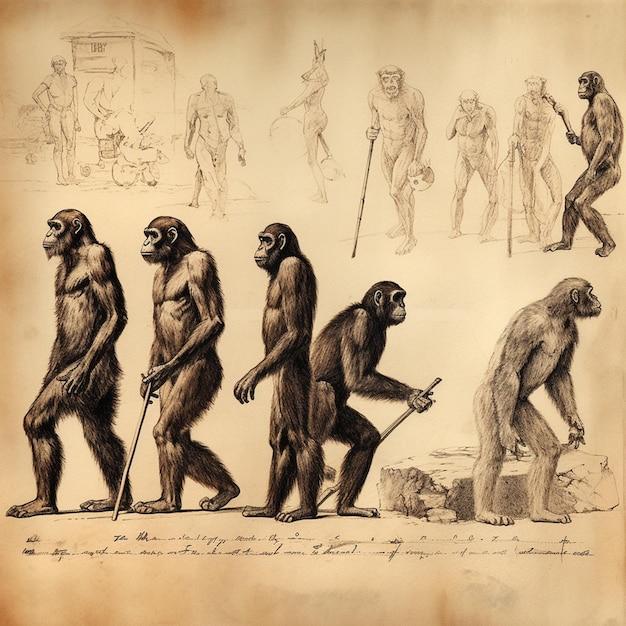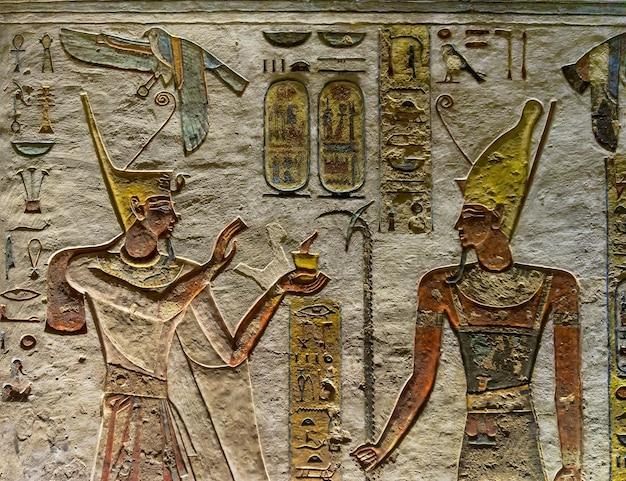The study of history and anthropology both involve exploring the human experience, but they approach it from different angles. History focuses on understanding past events and their significance, while anthropology delves into the study of human societies and cultures in the present and past. These two disciplines share an interconnected relationship, each enhancing our understanding of humanity in its own unique way.
Anthropology offers a broader perspective, studying human behavior, beliefs, and social structures across different societies and time periods. By examining diverse cultures, anthropologists can unravel universal patterns and differences in human development and behavior. History, on the other hand, provides a detailed account of specific events and their context, allowing us to learn from the past and gain insights into the complexities of human actions and motives.
In this blog post, we will delve into the relationship between history and anthropology, exploring how these disciplines intersect, complement, and enrich one another. We will also discuss their common goals, the main differences between sociology and anthropology, the concept of anthropology, and the various career opportunities available to anthropology graduates. So let’s embark on this journey of unraveling the intertwined realms of history and anthropology.

What is the Relationship between History and Anthropology?
Anthropology and history may seem like two different fields, but they share a deep connection that goes beyond mere scholarly interest. These disciplines intertwine, creating a fascinating tapestry of knowledge about our past, present, and future. Let’s delve into the relationship between history and anthropology and uncover the secrets they hold.
An Interdisciplinary Dance: Tracing the Footprints of Humanity
Anthropology: The Investigative Science of Humanity
Anthropology, often referred to as the study of humankind, seeks to understand the complexity of our species through various lenses. Anthropologists meticulously examine human behavior, culture, language, and biology to unravel the mysteries of our existence and the circumstances that shape our societies.
History: A Chronicle of Our Past Adventures
History, on the other hand, is like a grand storyteller, recounting the tales of our ancestors. It documents the events, individuals, and narratives that have shaped civilizations throughout time. By piecing together the puzzle of the past, historians offer us insights into human triumphs, failures, and the lessons we can learn from our forebears.
Overlapping Territories: Where History and Anthropology Collide
The Power of Context: Comprehending the Big Picture
Both anthropology and history recognize the significance of context in analyzing and interpreting human phenomena. History scrutinizes primary documents, artifacts, and accounts to construct narratives, while anthropology examines the interplay between culture, society, and individual experiences. By merging these perspectives, we gain a robust understanding of the events and forces that have shaped humanity.
Lost in Translation: Language as a Key to the Past
Language, a fundamental pillar of culture, provides a vital vantage point for both historians and anthropologists. Historians gauge the development and evolution of language to uncover cultural shifts and trace the dissemination of ideas. Meanwhile, anthropologists explore language as a tool to understand social behavior, identity, and cultural beliefs. Together, they unveil the intricate connections between communication, culture, and the human experience.
Illuminating the Present and Future: The Role of Anthropology and History
Historical Anthropology: Bridging the Past and the Present
The intersection of history and anthropology opens doors to exploring the present through a historical lens. Historical anthropologists adeptly apply the methodologies of both disciplines to study contemporary societies, shedding light on how past events and cultural legacies shape our current lives. By understanding our roots, we gain insights crucial for fostering social change, addressing inequalities, and building a more inclusive future.
Lessons from the Past: Guiding Our Path Forward
Anthropology and history are not mere academic pursuits; they hold valuable lessons for society. By examining the mistakes and successes of our predecessors, we can cultivate wisdom that guides our present and future actions. Whether it be understanding the causes of conflicts or recognizing the impacts of colonialism, the insights gleaned from these disciplines can inform policies, challenge biases, and promote social justice.
In conclusion, the relationship between history and anthropology is an intricate and captivating one. Together, they unravel the tales of our ancestors, shed light on the complexities of the human experience, and offer guidance for our future. By bridging these disciplines, we gain a comprehensive understanding of our shared past and lay the groundwork for a more enlightened and empathetic society.
So, next time you ponder the wonders of our past, remember that anthropology and history are entangled in a delightful intellectual dance, unveiling the mysteries of our collective journey with a side dish of wonder and a pinch of humor.

FAQ: What is the relationship between history and anthropology?
What is anthropology in simple words
Anthropology is the study of humans and their different cultures, societies, and behaviors. It seeks to understand human evolution, biology, language, and social structures. Basically, anthropologists are the cool detectives who unravel the mysteries of human existence.
What is the main relationship between sociology and anthropology
Sociology and anthropology are like sibling disciplines. While sociology focuses on understanding society and social behavior, anthropology digs deeper into the cultural aspects of human societies. So, while sociologists are busy analyzing the big picture, anthropologists are busy immersing themselves in the fascinating details.
What is the key difference between anthropology and sociology
If both disciplines were ice cream flavors, sociology would be vanilla and anthropology, a delicious mix of exotic flavors. Sociology looks at society as a whole, while anthropology examines the cultural, linguistic, and biological nuances of societies across time and space. So, while sociology gives you the bigger picture, anthropology takes you on a journey into the exciting world of human diversity.
Which is easier: anthropology or sociology
Well, let’s just say that easy is a relative term. Both anthropology and sociology have their own complexities. While sociology may seem more straightforward, anthropology can sometimes make your brain do cartwheels. But hey, where’s the fun in taking the easy road? Embrace the challenge, and you’ll discover a whole new world of knowledge and understanding.
What is the concept of anthropology
Anthropology is the ultimate melting pot of knowledge. It combines elements from biology, history, linguistics, psychology, and even archaeology to provide a holistic understanding of human beings. It’s like having one superpower that allows you to unlock the secrets of human existence from every angle.
What are the four major fields of anthropology
Anthropology is like a fancy buffet with diverse options. The four main fields of anthropology are:
- Biological Anthropology: Examines human evolution, genetics, and physical characteristics.
- Cultural Anthropology: Explores different cultures, beliefs, and social behaviors.
- Linguistic Anthropology: Studies the complexity and diversity of human languages.
- Archaeology: Digs into the past to uncover artifacts and understand ancient societies.
Why is anthropology difficult
Ah, the million-dollar question! Anthropology is like navigating through a jungle of theories, concepts, and cultural intricacies. It challenges your worldview and demands an open mind. But fear not, brave explorer! Once you unravel its mysteries, you’ll be rewarded with a deeper understanding of humanity and a unique perspective on the world.
Is there a demand for anthropologists
Absolutely! In a world that’s become a global village, the demand for anthropologists has skyrocketed. From cultural consulting to international development, anthropology offers a wide range of exciting career paths. So, bring out your inner Indiana Jones and get ready for a rewarding adventure!
What are the goals of anthropology
Anthropology is on a mission to answer some fundamental questions: How did humans evolve? How do different societies function? What shapes our cultural identities? By striving to understand human diversity and the complexities of our existence, anthropology aims to promote cultural awareness, societal understanding, and global harmony.
What is the relationship between history and anthropology
Ah, the dynamic duo! History and anthropology go hand in hand, like peanut butter and jelly. While history focuses on the documented past, anthropology embraces the broader spectrum of human experience. Anthropologists swoop in with their ethnographic research, unearthing cultural practices and shedding light on the untold stories that history may have overlooked. Together, they create a more comprehensive understanding of the complexities of human history and society.
What is the main focus of anthropology
Anthropology has its sights set on unraveling the mysteries of human existence. From studying ancient civilizations to understanding current cultural practices, it digs deep into the essence of what it means to be human. Anthropologists explore everything from the physical characteristics of our ancestors to the intricacies of our social structures. It’s like being Sherlock Holmes in a world full of fascinating puzzles.
What jobs can I get with a bachelor’s in anthropology
With a bachelor’s degree in anthropology, you can open the doors to a wide range of exciting career opportunities. You could become a cultural resource manager, a museum curator, a forensic anthropologist, or even a user experience researcher. The options are as diverse as the subject itself. So, go ahead and turn your passion for human understanding into a thrilling and fulfilling career.
Go forth and explore the fascinating realms of anthropology and history with your newfound knowledge and a big smile on your face! Remember, understanding our past helps us shape a better future. Happy adventuring!
